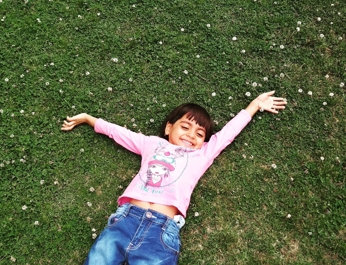 Perhaps one of the biggest concerns for parents who are contemplating divorce is the effect that their separation will have on their children. While it’s true that divorce will inevitably serve as a hardship and hurdle to overcome for any child, it is possible for divorce to actually be beneficial for their well-being in the long run. Of course, household dynamics and individual circumstances will need to be considered, but it’s just as important to consider the benefits of divorce for your children as it is to consider the disadvantages. Below, we’ve listed three benefits that divorce can have for children.
Perhaps one of the biggest concerns for parents who are contemplating divorce is the effect that their separation will have on their children. While it’s true that divorce will inevitably serve as a hardship and hurdle to overcome for any child, it is possible for divorce to actually be beneficial for their well-being in the long run. Of course, household dynamics and individual circumstances will need to be considered, but it’s just as important to consider the benefits of divorce for your children as it is to consider the disadvantages. Below, we’ve listed three benefits that divorce can have for children.
Less Exposure to Adult Conflict
As much as children would love for both of their parents to be together and happy, many children who grow up in a high-conflict home eventually voice a preference for their parents to split, as doing so can create a more peaceful atmosphere for all.
If you and your spouse are staying together for the sake of the kids, but find yourself leading unhappy lives as a result, you may actually be hurting your kids more than helping them. By exposing your children to adult conflict, such as arguments, yelling, parental tension and even complacency and indifference, you may be inadvertently teaching your children poor lessons about relationships and marriage. In addition to this, exposure to chronic tension can create stress, low self-confidence and self-blame within children.
Prioritizing your own health and happiness and striving to be a leading example for your children in what a respectful relationship looks like is not selfish. As backward as it may seem, getting a divorce and removing your children from the exposure of recurring hostility can show great strength, and often times may be one of the most profound decisions you could make for their own well-being and perception of healthy relationships.
More Intentional Time with Each Parent
If your children are accustomed to living in a household where Mom and Dad are occupied with their own troubles and chronic conflict, it’s possible that quality time spent with them gets laid to wayside amidst relational hardship. In addition to this, if you’re staying with your spouse for your children but at the expense of your own health and ability to be present with your children, you may not be doing them as big of a favor as it seems.
Having healthy and present parents is one of the best gifts you can give your children, and sometimes that’s best accomplished through separation from your spouse. While divorce is inevitably challenging for the entire family, once the dust settles and each spouse gets accustomed to their own life and routine as single parents, you may find that your time with your children is far more intentional and focused. Since parenting time will be split, you’ll likely present your best self for your children—add in restored sense of self and purpose post-divorce, and you may find that you’re more capable and better suited to provide for your children than ever before.
 Learned Resilience and Empathy
Learned Resilience and Empathy
It’s natural that parents want to protect their children from hardships and heartbreak. While this gesture is certainly noble in theory, the truth is that no parent can protect their child from every hardship in life, and it’s unfair and unrealistic to put that pressure on oneself. Challenging seasons will arise for every family and every individual. Rather than bend over backwards to try and shield your child from sadness or hardship, and in turn sacrifice your own emotional health (which does have a ripple effect on children), it may be a more realistic goal to purpose to support and guide them through hardship and help them learn how to navigate unfavorable situations. Divorce will be hard, but if both parents agree to keep the children out of the conflict and affirm each other’s relationships with their children, it will make the transition far easier for everyone involved.
It’s common for children who have walked through a parental divorce to have a strong sense of resilience and adaptability—learned skills that can benefit them throughout life. In addition to this, children of divorce are also likely to show an increased sense of empathy for others going through similar situations or difficulties in general. This is true of anyone who walks through a challenging season—it’s not ideal, but more often than not, it can serve as a character-building experience.
Let it be understood: every child will react to divorce differently. That being said, your child’s experience with your divorce has far less to do with the actual breakdown of an institutional marriage, and far more to do with how their parents handle the process. A child needs to feel secure in their relationship with their parents, have confidence in their parent’s character, and be able to count on a routine that protects them from unnecessary turbulence.
While divorce is never the ideal, the truth is that sometimes it does become necessary in order for both spouses to lead healthy and happy lives. If you’re avoiding divorce to shield your children, take a moment to consider the long-term benefits of removing them from chronic conflict, and instead fighting for your own well-being with the intentions of being the best parent possible.

